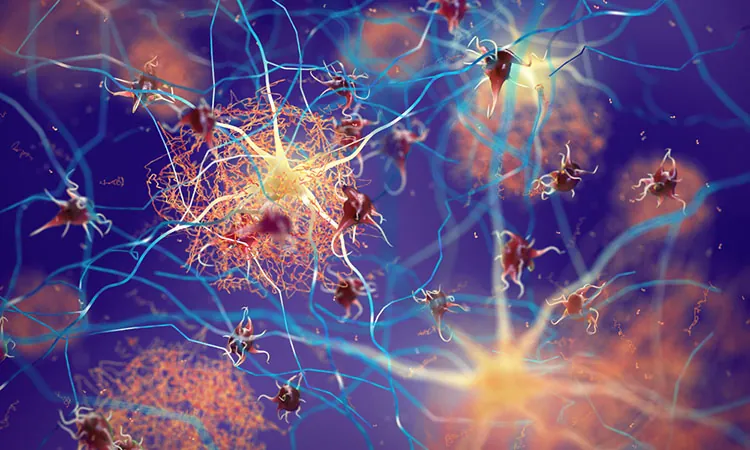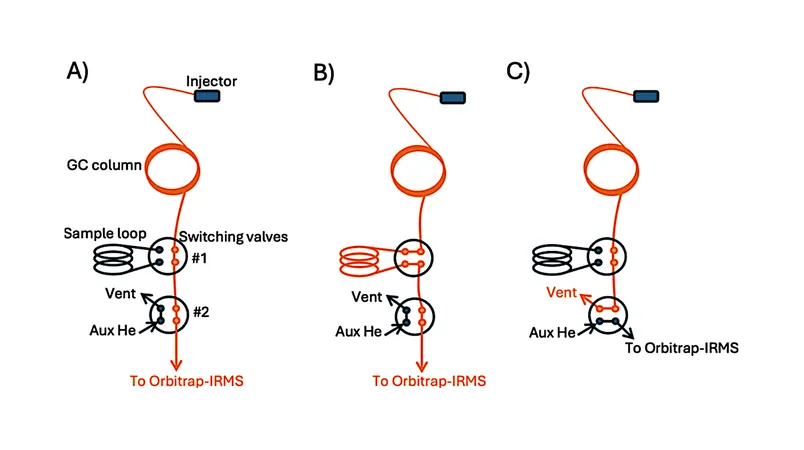
Breakthrough Discovery: Astrocyte Protein RTP801 and Its Link to Alzheimer’s Cognitive Decline
2025-06-02
Author: Li
Revealing a Hidden Mechanism in Alzheimer’s Disease
A groundbreaking study from the University of Barcelona’s Institute of Neurosciences (UBneuro) has uncovered a previously unknown molecular mechanism driving cognitive decline in Alzheimer’s disease. Published in the prestigious journal Alzheimer’s & Dementia, this research highlights the critical role of RTP801, a protein in astrocytes—brain cells once thought to merely support neurons.
Astrocytes: The New Heroes in Brain Health
Traditionally viewed as passive support cells, astrocytes are now recognized as key players in maintaining brain health. This study provides unprecedented evidence of RTP801’s dual role—not just in neuronal stress but also in the functionality of astrocytes and the neurodegenerative process associated with Alzheimer’s.
Professor Cristina Malagelada, who led the research, stated, "RTP801 is a stress response protein involved in neuronal dysfunction, but its precise functions within astrocytes have only recently come to light." This revelation could change the way we perceive the mechanisms behind cognitive decline.
Targeting RTP801: A Potential Path for Brain Repair
In a bold move, the research team utilized advanced gene therapy techniques to silence RTP801 in astrocytes located in the hippocampus, a key area for memory and learning. Remarkably, their findings revealed significant enhancements in spatial memory and improved brain connectivity in animal models suffering from Alzheimer’s.
Almudena Chicote, the study's lead author, noted, "Alzheimer’s disrupts critical brain circuits, leading to issues like cognitive impairment and emotional dysregulation. Our study sheds light on RTP801’s impact on neuroinflammation and related markers, paving the way for innovative interventions."
Restoring Neurotransmitter Balance: The Role of GABA
A standout discovery from this research involves gamma-aminobutyric acid (GABA), the brain’s main inhibitory neurotransmitter, which is diminished in Alzheimer’s, resulting in hyperactive neurons and cognitive decline. Silencing RTP801 was found to protect a unique set of neurons known as parvalbumin-positive (PV+) interneurons, crucial for GABA production in the hippocampus.
Chicote emphasized, "By silencing RTP801, we may mitigate damage to these vital interneurons, potentially restoring normal GABA levels and enhancing overall brain function." This finding could revolutionize approaches to combating the disease.
Towards Innovative Alzheimer’s Therapies
Looking ahead, the research team is eager to delve deeper into RTP801 as a therapeutic target. Their findings advocate for an approach that doesn't just mask Alzheimer’s symptoms but aims to tackle the underlying mechanisms fueling the disease.
As Alzheimer’s disease remains a global health crisis, affecting millions without a cure, discoveries such as this are vital. They not only deepen our understanding of the disease but also illuminate fresh paths toward effective treatments.


 Brasil (PT)
Brasil (PT)
 Canada (EN)
Canada (EN)
 Chile (ES)
Chile (ES)
 Česko (CS)
Česko (CS)
 대한민국 (KO)
대한민국 (KO)
 España (ES)
España (ES)
 France (FR)
France (FR)
 Hong Kong (EN)
Hong Kong (EN)
 Italia (IT)
Italia (IT)
 日本 (JA)
日本 (JA)
 Magyarország (HU)
Magyarország (HU)
 Norge (NO)
Norge (NO)
 Polska (PL)
Polska (PL)
 Schweiz (DE)
Schweiz (DE)
 Singapore (EN)
Singapore (EN)
 Sverige (SV)
Sverige (SV)
 Suomi (FI)
Suomi (FI)
 Türkiye (TR)
Türkiye (TR)
 الإمارات العربية المتحدة (AR)
الإمارات العربية المتحدة (AR)